The Big Green List Holiday Guide: Everything you need to know
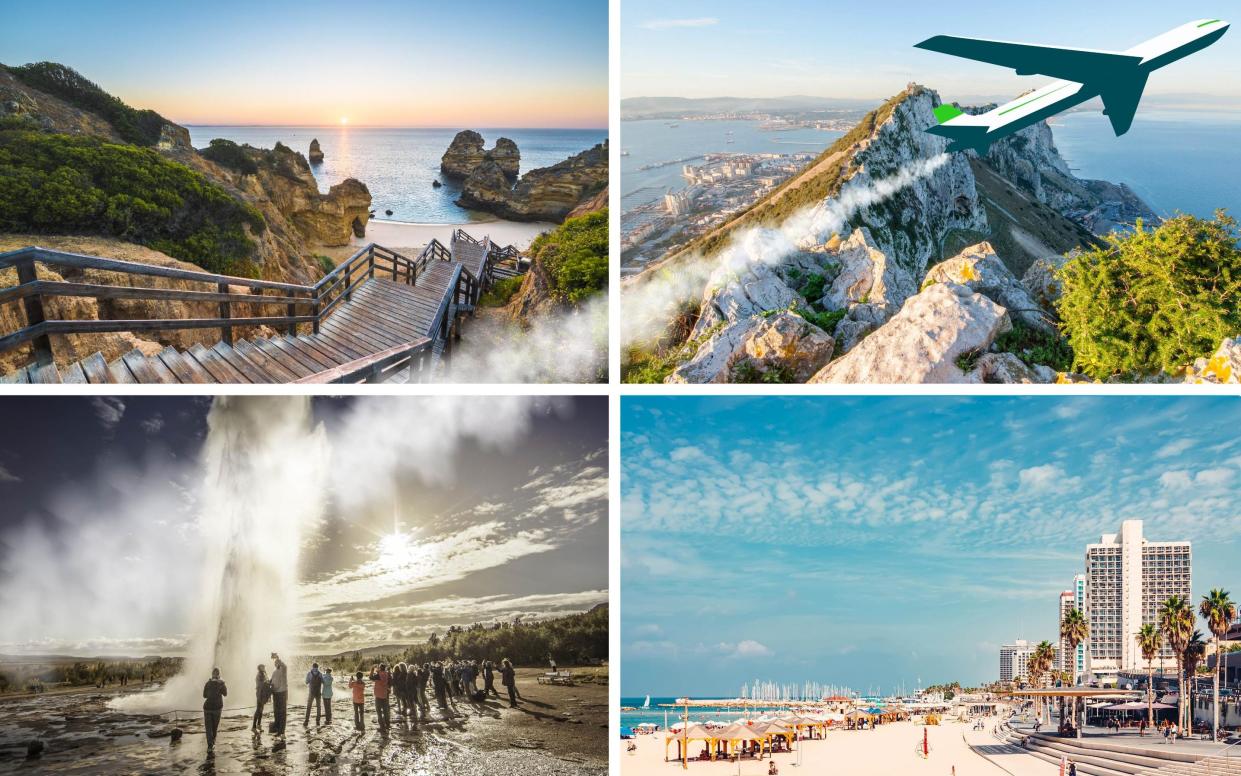
Green. A compelling, persuasive colour. Symbolic of so much. Of rebirth and renewal. Of growth. Of advancement and forward motion. Of that basic instruction to go, and go now. Certainly, all these connotations ring true, now the government has finally announced its “green list” of countries that are officially sanctioned as safe destinations for British tourists in the coming months. The announcement had been much promised – but had been notably light on detail – for several weeks. Now, at last, we have it; a tally of places that we can consider for holidays from today, May 17. Let summer commence.
Naturally, there is plenty of disappointment to go with the excitement. For now, the list is short; more a takeaway lunch menu than a decadent feast. And of the countries included on it, two are only theoretical possibilities - in practice, New Zealand and Australia have both been clear that their borders will probably remain shut for the remainder of this year.
This though, is just a beginning. Obvious omissions and popular places – such as France, Spain and Italy are likely to appear on the “green list” in June or July, as more of mainland Europe becomes vaccinated. The choice will broaden as the weather improves.
Of course, there are caveats too. The “green list” is a best-case scenario, based on relevant rates of infection, and as we saw last summer – a country can be stripped of its safe status if circumstances dictate. Unlike last summer, the countries themselves are also making extra requests of their visitors. Each place featured in this article has been given a “hassle-free travel rating” – an assessment of its convenience as a destination based on eight factors. These include whether it is easing restrictions for the vaccinated, whether it is demanding quarantine or pre-arrival testing of non-vaccinated tourists, whether its beaches are open, and whether there will be curfews for bars and restaurants. A more detailed breakdown of the data can be found here.
Still, for now, let’s embrace the positives. After a winter of discontent where holidays abroad have been not just implausible but illegal, we have reached a happy hour where we can be soaking up in the sun in Portugal, or admiring the wild geography of Iceland. The pandemic is not over, and travel within it is still a process fraught with pitfalls and limitations. But where, for months, there has only been a red light, now there is a gleam of green. And green, as we’ve already discussed, means “go”.
Portugal
The inclusion of Portugal on the “green list” is – if you will pardon the Noughties social-network reference – a case of friends reunited. The great nation of the Iberian Atlantic has long been one of the best-loved travel zones for British tourists – and, indeed, is this country’s oldest ally (dating back to the Treaty of Windsor in 1386 if you want the trivia).
But that relationship was fractured a little in 2020, as Portugal fell in and out (but mainly out) of the UK’s official “travel corridors” club – then found itself on the “red list” of high-risk overseas locations that trigger a quarantine requirement on return, due to its cultural and aviation ties to Brazil. Its being given formal destination approval by the UK government will be a source of joy for sun-loving Britons, who have missed their regular week in the Algarve, but also for hotels, restaurants and golf courses in that sandy south-coast region – which have been lacking a crucial element of their clientele for over a year.
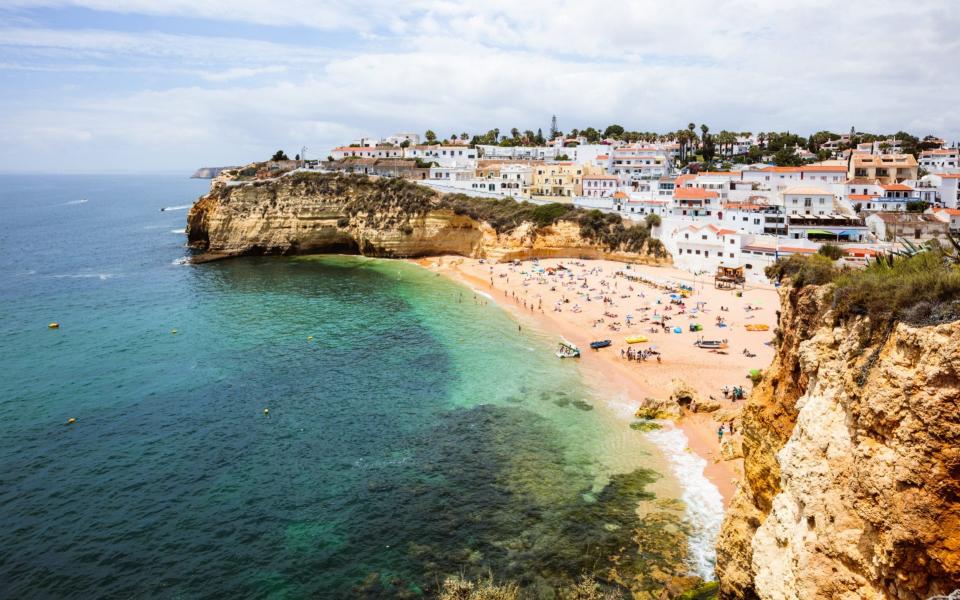
Not that the Algarve – with its broad beaches around Carvoeiro and Albufeira – is all Portugal has to offer. Here is a country of history, glamour and grace – much of which can be spotted on a weekend in its capital. The transformation of Lisbon since the turn of the millennium has been remarkable – from faded relic to vibrant 21st-century city where you can gawp at modern art in the Museu Colecao Berardo (museuberardo.pt), and dine by the docks in gentrifying Cais do Sodre (try seafood specialist Monte Mar; montemar.pt).
But then, Lisbon is not everything either. Porto is just as exciting, with added fortified wine – while those keen to push beyond the obvious are increasingly turning to the Alentejo, the region which extends north from the Algarve, but still has few of its visitors.

Who goes here? Families seeking unfussy fun, guaranteed blue skies, and the same time zone. The Algarve resorts tend to bask in the upper Twenties Celsius in July and August.
How do I get here? Easily. TAP (020 8222 7520; flytap.com), easyJet (0330 551 5151; easyjet.com), British Airways (0344 493 0787; ba.com) and Ryanair (01279 358 395; ryanair.com) fly to Lisbon from a variety of UK airports. The latter threesome also serve Faro – as do Tui Airways (020 3451 2716; tui.co.uk) and Jet2 (0333 300 0042; jet2.com).
A seven-night Algarve getaway for a family of four to the four-star Aquashow Park Hotel (which is well-named, with its pools, slides and lazy river) in Quarteira, flying from Manchester on July 31, costs from £3,905 in total, including breakfast, through Tui. Original Travel (020 7978 7333; originaltravel.co.uk) serves up “Seaside Cities, Wine Estates and Beautiful Beaches” – a seven-night private journey that wanders south from Lisbon into the rustic tranquility of the Alentejo. From £1,820 a head (including flights).
What should I pack? Swimwear. Something light for the evenings. No hiking boots.
Will they actually let me in? On April 28, Manuel Lobo Antunes, Portugal’s ambassador to the UK, said: “We are hopeful that, from mid-May, regular mobility between the UK and Portugal can be established.” This should include the non-vaccinated. “We want – as much as possible – to go back to the regime that existed before the pandemic,” he added.
Hassle-free travel rating: 5/8
Read more: where to stay and what to do in Portugal
Gibraltar
The pandemic has had some unexpected consequences. Go back a decade or so, and, for all its historic ties to Britain, you might have struggled to think of Gibraltar as a serious destination for a holiday. An intriguing day-trip option from Cadiz, Marbella or any Costa del Sol resort, maybe – but a place in which to put down roots for few days, much less so.
And yet, there was a point last autumn – at the beginning of November – where this fabled peninsula at the base of the Spanish landmass was the final remaining sliver of the planet open to Britons who wanted to travel; a “last man standing” as a web of restrictions closed in elsewhere. Perhaps this resilience has focused minds, because Gibraltar is now a firm part of the tourism conversation, and should repeat its popularity trick this summer.
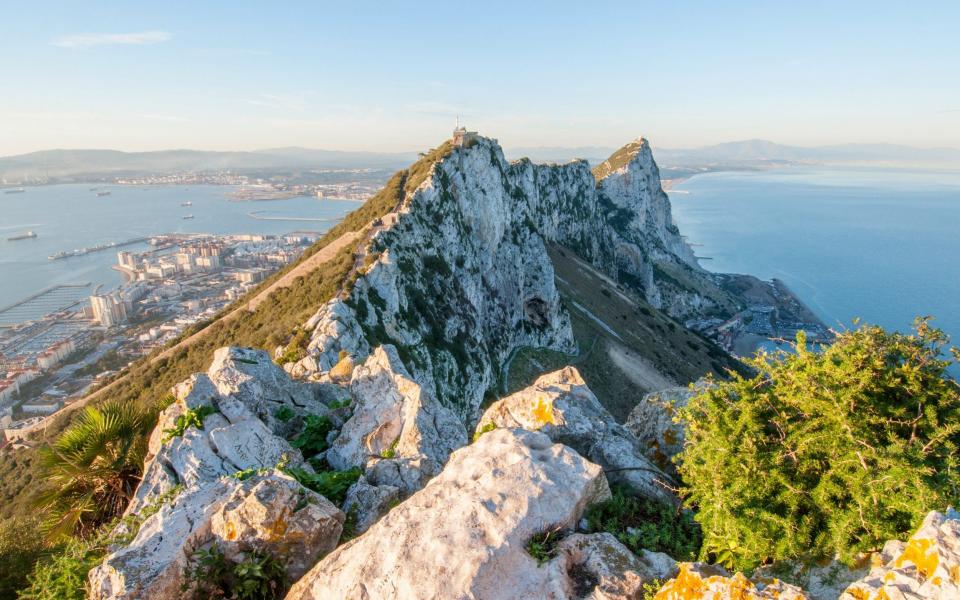
Really, there is no reason why it should not. While, politically and emotionally, Gibraltar is entangled with the UK (by treaty since 1713), its geography is Spanish – a hop from some of Europe’s best-loved beaches. It shares their sunny disposition and high-summer temperatures (of around 27C). That it adds some of its own quirks – its famous limestone Rock, rearing to 1,398ft (426m); views from its summit which reach across the Strait to the heat-haze vision of Morocco, nine miles beyond – is pivotal to its underplayed charm.
Who goes here? In 2020 – determined tourists eyeing a last short-cut to the Med. In 2021 – savvy tourists who realise they can have Spanish weather, even if they can’t go to Spain.
How do I get here? BA from Heathrow and London City, easyJet from Bristol, Gatwick, Manchester and Edinburgh, Eastern Airways (01652 680 600; easternairways.com) from Southampton and Birmingham, and Wizz Air (0330 977 0444; wizzair.com) from Luton. A seven-night break at the three-star Bristol hotel in the main town, flying from Gatwick on August 19, costs from £995 per person, including breakfast, through easyJet Holidays.
Where do I stay? The Rock Hotel (rockhotelgibraltar.com) – a four-star retreat (inevitably) in the shadow of its namesake - has been Gibraltar’s gilded accommodation icon since 1932. It offers a pool, and a respected in-house restaurant. Doubles from £105. Read the full review here.
What should I pack? Everything you’d take to Marbella – plus some Union Jack trunks.
Will they actually let me in? Absolutely. Chief minister Fabian Picardo served up all the right words recently when he spoke of “a great British staycation in the Mediterranean” – without testing. “We don’t require PCR testing for those who come across our land frontier. We therefore don’t think it would be appropriate for us to require PCR testing of those who are coming from the United Kingdom, which has a higher vaccinated population and a lower incidence of Covid than the European Union,” he said.
Hassle-free travel rating: 5/8
Read more: where to stay and what to do in Gibraltar
Iceland
If any country can be said to have mustered a response to Covid-19 resolutely in its own likeness, it is surely the outermost fragment of the Nordic world. Iceland has treated the rampaging virus with all the stoicism you might expect of an island where volcanoes grumble and tectonic plates grind on a regular basis – and everyday life carries on regardless. It was one of the first countries to reopen its borders amid the turbulence of last summer, beckoning in tourists via a test on arrival. It is taking a similarly calm approach to 2021 – all fully vaccinated travellers are welcome to visit.
This availability as the hot months come into focus is likely to help continue the transformation of its image as a destination. Where once Iceland might have been seen strictly as a beast of fairy-tale winter – thermal waters steaming in the cold air, the aurora borealis painting the night canvas a blur of green and pink – the country is increasingly admired as a possibility for summer.
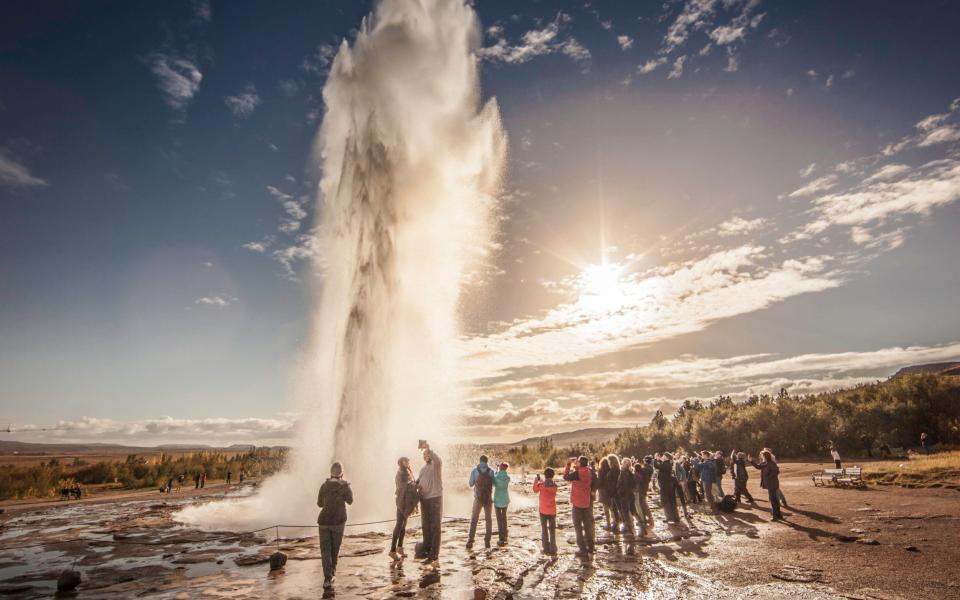
True, you won’t pick up much of a tan – the mercury rarely pushes above 15C, even in July. But the northerly latitude – and the almost endless sunlight this equates to in the middle of the year - means you can explore for as long as you have the energy. And not just in the obvious places. While the “Golden Circle” (Thingvellir National Park, the Geysir Geothermal Area, the Gullfoss waterfall) remains a popular sight-seeing arc, there is a growing trend for tackling longer road-trips – a complete circle of the island along the Route 1 “ring road”, or up into the Westfjords region which, mountainous and remote, fans out at the north-west corner of the landmass.
Then there is Reykjavik – one of Europe’s most appealing capital cities when winter is at home and the coffee is brewing, but just as charming when the day never seems to finish.
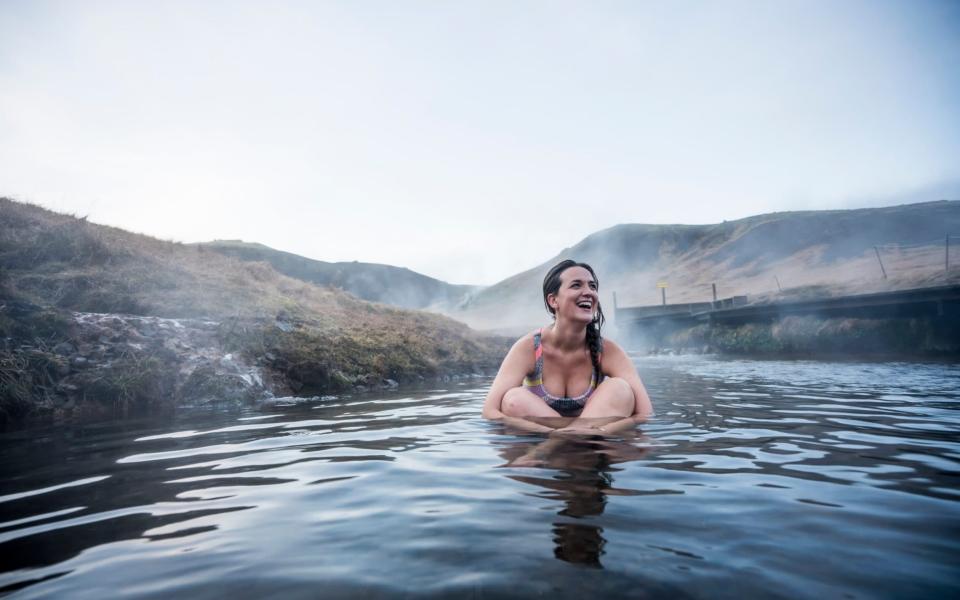
Who goes there? Explorers who want scenic wonders and adventure, but don’t want to travel too far from the beaten track - or be squished into a plane for a day - to find them.
How do I get there? National carrier Icelandair (020 7874 1000; icelandair.com) offers connections from Keflavik to Gatwick, Heathrow and Manchester. BA flies in from Heathrow. EasyJet runs services from Edinburgh, Gatwick, Luton, Manchester, Belfast and Bristol. Wizz does the same from Luton. Jet2 and Tui throw in seasonal operations. Discover The World (01737 214 250; discover-the-world.com) sells an “Around Iceland” road trip which takes two weeks to drive a circuit of Route 1 - via the “northern capital” Akureyri and the fractured east coast around Egilsstadir. From £2,063 a head with flights.
Where do I stay? Hotel Borg (keahotels.is/en/hotels/hotel-borg) could scarcely offer a better location in Reykjavik - peering out across Parliament Square in a haze of Art Deco stylings befitting its emergence in 1930. As with any Icelandic property, it knows its way to the treatment table, and has a dedicated spa in its basement. Double rooms from £131. Read the full review here.
What should I pack? Layers. The temperatures in Iceland can fall away pretty quickly, even if the summer sun does not, and evenings can be considerably chillier. Think fleecy.
Will they actually let me in? Yes – assuming you are fully vaccinated, or can prove a prior recovery from Covid. “We are excited to safely reopen our borders to fully vaccinated British citizens, as well as those who are no longer susceptible to the virus,” Sigridur Dogg Gudmundsdottir, the head of the Visit Iceland tourist board, said in March.
Hassle-free travel rating: 4/8
Read more: where to stay and what to do in Iceland
Israel
Just as the restrictions of the pandemic have helped to recast Gibraltar as an accessible extension to the Costa del Sol, so Israel has been stepping away from the fire with a fresh gleam to its profile. Its vaccination process has been so swift and organised – more than 60 per cent of its population had received at least one jab by the start of April – that it has become a global case study in how to repel Covid-19 with science rather than soundbites.
A positive side-effect of this is that its attractiveness as a holiday destination has also been burnished. And Israel has been very happy to emphasise this. As early as February, it announced a “tourism bubble” with Greece and Cyprus that allows fully vaccinated citizens of each nation to move freely between the three; a plan the Greek prime minister Kyriakos Mitsotakis called “a trial run of what we can do with other countries.” Israel’s door will also be open to other increasingly immunised nations as the summer progresses.
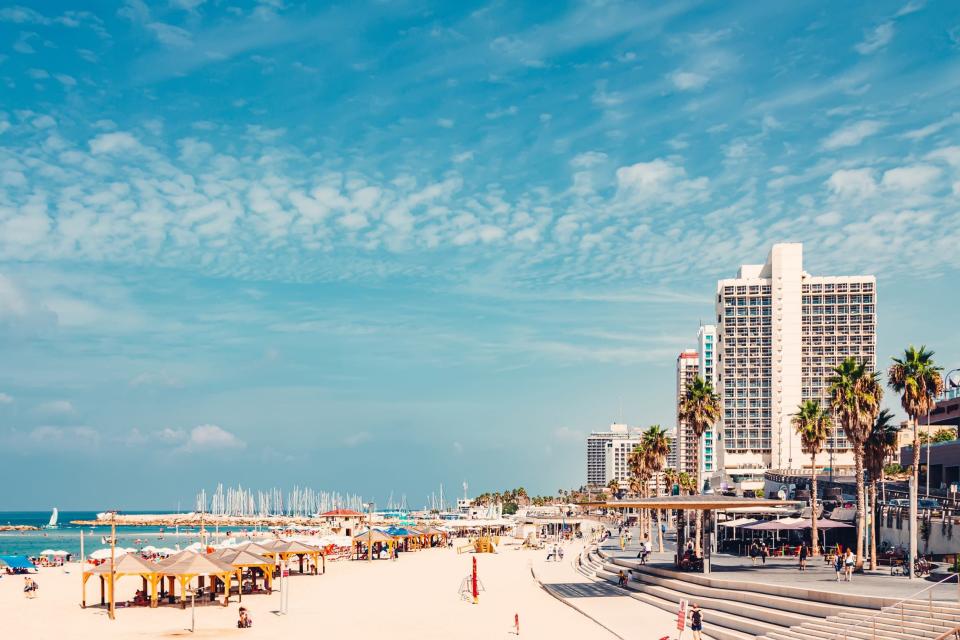
Of course, there are other strands to Israel’s international image. One is its relationship with some of its neighbours – a fractiousness that finds form in its oppression of the Palestinian territories as much as its mutual antipathy with Lebanon. But a stabilising of ties with other parts of the Middle East – it signed a “normalisation agreement” with the UAE last August – has lent it a growing air of safety that has not always existed in the minds of potential tourists. More and more, this feeds into holidaymakers’ thinking.
As does a second key element of Israel’s wider appeal – the excellence of the beaches along much of its 120 miles of seafront; not least in Tel Aviv, where a city of Bauhaus beauty has become one of the Mediterranean’s most glamorous. Where once, Jerusalem and its biblical heritage were the dominant theme of breaks on Israeli soil, for many, the main selling point is now the chance to doze in the sun on Gordon Beach and Frishman Beach.
Who goes there? Couples fully aware that, not only does Tel Aviv have some of the Mediterranean’s sandiest shoreline – the city looks brilliant in Instagram pictures as well.
How do I get there? BA flies into Ben Gurion International (12 miles from Tel Aviv) from Heathrow. EasyJet offers services from Luton, Manchester and Gatwick, and Wizz does from Luton. El Al (020 3204 0300; elal.com) touches down in Luton and Heathrow. Abercrombie & Kent (01242 386 468; abercrombiekent.co.uk) offers an eight-night “Classic Israel” itinerary which serves up a little of everything the country has to offer, splicing Tel Aviv to Jerusalem and the Dead Sea. From £4,710 a head - including flights.
Where do I stay? The Hotel Montefiore (hotelmontefiore.co.il) taps elegantly into the Tel Aviv vibe as a 1922 townhouse converted into a 12-room boutique hideaway - complete with lobby bar and library – in the Lev Ha’ir district. Double rooms from £234. Read the full review.
What should I pack? Your coolest swimwear - Tel Aviv knows how to look good on the beach. Your coolest gear for after-hours too. Towel off, glam up – Tel Aviv loves a party.
Will they actually let me in? Yes – if you’ve had your jabs. Israel has said that the fully vaccinated are welcome from May 23 (though a pre-departure test may also be needed).
What other travel advice should I be aware of?
BA has joined the likes of Virgin Atlantic, Lufthansa, Iberia and a host of US airlines in cancelling flights to Israel amid rising tensions over the conflict between Israelis and Palestinians. The Foreign Commonwealth & Development Office currently advises against all travel to certain parts of Israel due to the ongoing conflict, including: Gaza the Sheba’a Farms and Ghajjar within 500m of the border with Lebanon east of Metula, including the northern edge of the town and east of Route 98 along the Syrian border. It also advises against all but essential travel to the rest of Israel as the tensions escalate.
Hassle-free travel rating: 5/8
Read more: where to stay and what to do in Israel


